Basic Training at the K.O. Rayburn Training Center
|
Basic Law Enforcement Academy Life
Each full-time police academy graduate will complete 16 weeks of intensive training intended to give them the core knowledge necessary to work as a peace officer. The academy is a hybrid program that consists of self-paced training using the Canvas Learning Management System, live online training using Go to Training, and in-person training at the CLEET facility.
Cadets receive both classroom and practical firearms training at the Academy's state-of-the-art firing range. They also receive training in everything from traffic stops to defensive tactics. Motor vehicle stops can even be simulated inside the facility, in the Multi-Purpose Room, which can hold several vehicles. The grounds also include a self-contained Law Enforcement Driver Training Course for driving exercises.
|
 |
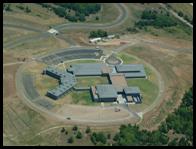 |
|
The academy's Basic course for new peace officers consists of 600 hours of training in a variety of areas. Criminal and traffic law, firearms, emergency vehicle operations, defensive tactics, first aid, human relations, and ethics are some of the major areas of instruction during this course. Other police related subjects such as accident investigation, criminal investigation, domestic violence and sexual assault, Standardized Field Sobriety Testing, radar operations, drug and narcotics crimes, alcohol crimes training are included in the areas an officer must study and pass before graduating. |
Law Enforcement Driver Training
Training begins with classroom lectures on topics including operational guidance, legal principles, officer liability, vehicle dynamics, risk management and the process of decision-making needed for collision avoidance. Next, the cadets use what they've learned in the classroom in practical driving situations that demonstrate the risks involved in emergency response and pursuit driving. Through the understanding and applied knowledge of the vehicle, reading the roadway, driving skills and behaviors promoted during emergency vehicle operations, basic cadets are able to successfully control the stress commonly associated with operating an emergency vehicle. They also learn vehicle handling and weight transfer techniques for high speed emergency response and pursuit driving. All cadets are instructed in the proper use of tire deflation devices. The student must pass each segment of the driving instruction and a comprehensive written examination.
|
|
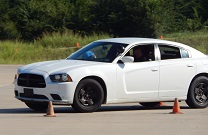 |
|
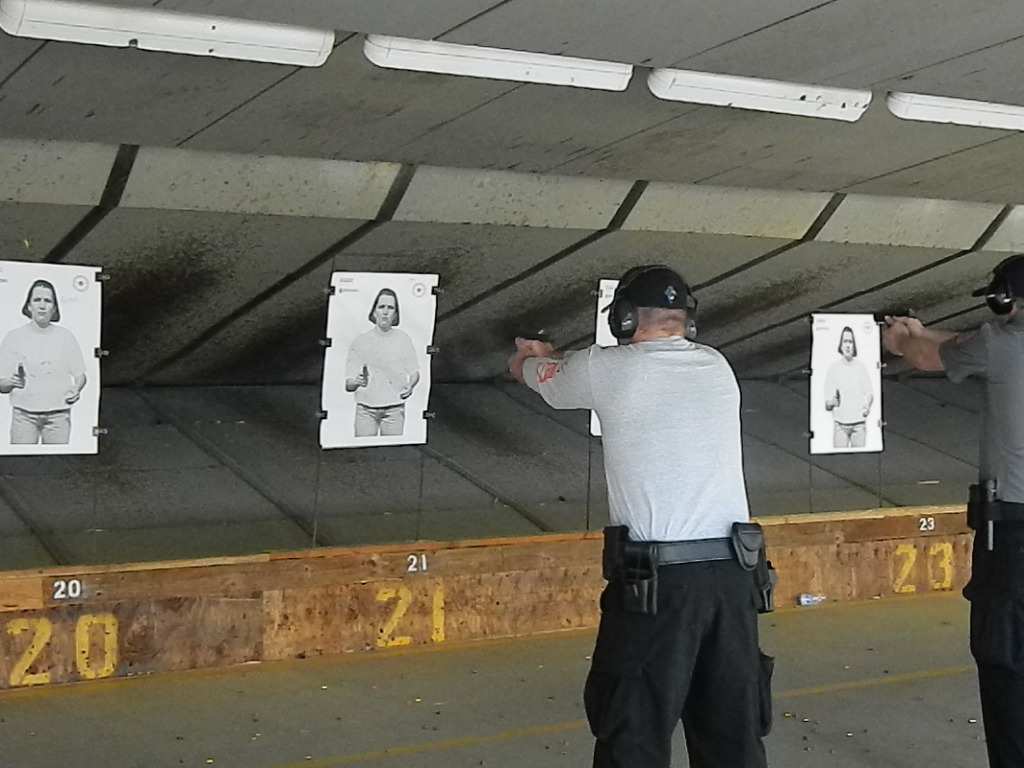
|
|
Firearms Training
Cadets receive lecture and practical firearms instruction from seasoned firearms instructors. Topics include handgun safety and maintenance, fundamentals of shooting, malfunctions, and orientation in the use of the shotgun and rifle. Students must shoot a minimum qualifying score with their weapons and pass a comprehensive written examination.
|
Traffic
Cadets receive detailed lecture and practical instruction for traffic stops and vehicle accident training from experienced peace officers. Utilizing appropriate information, tactics, diagramming skills and a variety of proven scientific and mathematical formulas, students must satisfactorily demonstrate both practical and written proficiency in traffic stops and documenting vehicle accident scenarios.
|
|
 |
|
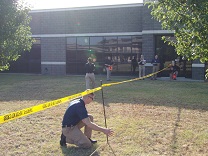
|
|
Criminal Investigation Training
Cadets receive lecture and practical instruction from veteran criminal investigators on topics which include: interviews and statements, crime scene behavior, interrogations, child abuse, first responder responsibilities, reports writing, death investigation, blood spatter, and collection of evidence. Students must demonstrate a practical proficiency in conducting a criminal investigation of a scenario.
|
Defensive Tactics Training
Cadets receive lecture and practical training in defensive tactics from skilled defensive tactics instructors. This includes training in pressure points, joint locks, handcuffing, strikes/blocks/combinations, straight baton, ground fighting and weapon retention. Students must demonstrate a proficiency in each of the areas and pass a comprehensive written examination.
|
|
 |
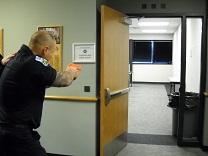 |
|
Patrol Tactics and Responding to Domestic Violence and Sexual Assualt
The academy educates officers about the latest patrol tactics and provides detailed training on responding to and investigating domestic violence and sexual assault. Basic cadets will receive training involving victim and officer safety, legal issues, impact of arrest, intervention and investigation, and victim assistance.
|
|
Formally Recognized College Credits
Various Colleges and Universities throughout the State of Oklahoma offer college credits for the completion of the Council on Law Enforcement Education and Training (CLEET) full-time Basic Academy.
For example a degree-seeking student who meets the admission requirements of East Central University (ECU), petitions the University as an adult student, presents their CLEET certificate showing completion of CLEET full-time basic academy, and pays a reduced fee & tuition will be awarded twelve (12) hours of academic credits toward the Bachelor of Arts in Criminal Justice degree.
To inquire about receiving college credits, contact the college or university of your choice.
|







